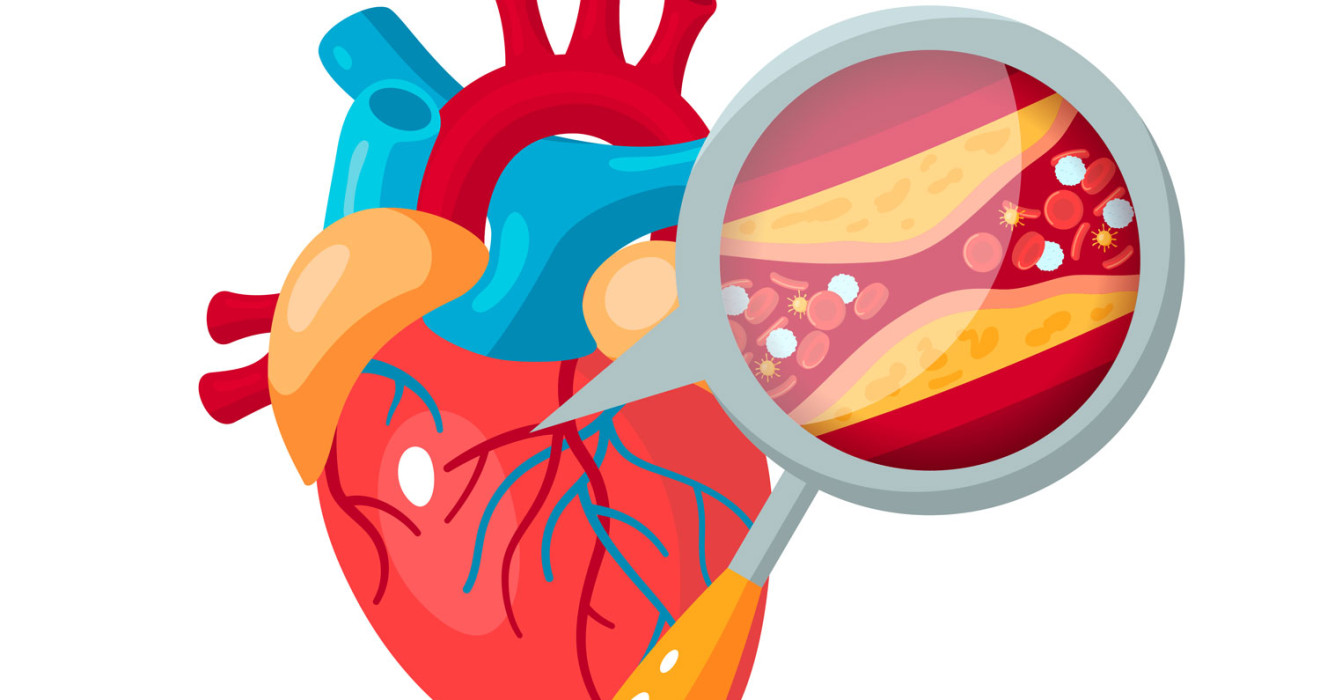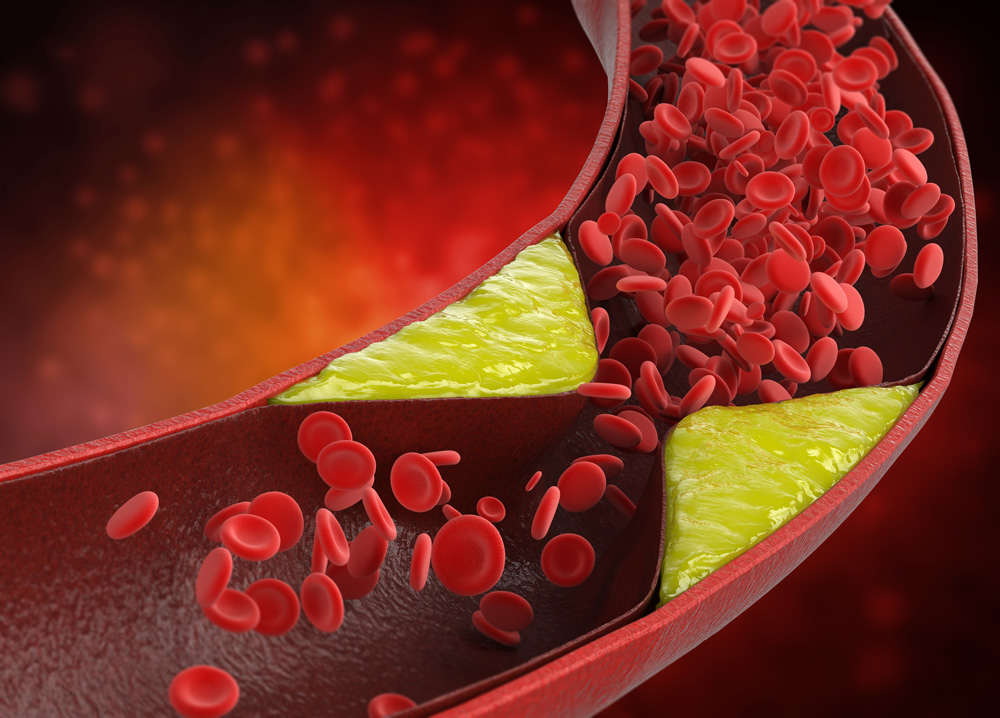
Hyperlipidemia (High Cholesterol)
Although cholesterol and other lipids are necessary for the body, excess amounts are stored as fat. Therefore, it can put cardiovascular health at risk. Hyperlipidemia is one of the most common risk factors for cardiovascular diseases.
What is Hyperlipidemia (High Cholesterol)?
The increase in lipid levels defines high cholesterol. It occurs in two forms: primary and secondary.
Primary hyperlipidemia is usually a genetic condition. Secondary hyperlipidemia is an increase in lipid levels that occurs as a result of other health problems.
In cases where hyperlipidemia is not treated, cardiovascular diseases may occur. Therefore, treatment is vital.
What are the Causes of Hyperlipidemia (High Cholesterol)?
The causes of hyperlipidemia are as follows:
- Genetic factors
- Age
- Malnutrition
- Drugs
- Obesity
- Smoking
- Other health problems such as kidney disease, diabetes
- Inactivity
What are the Symptoms of Hyperlipidemia (High Cholesterol)?
High cholesterol may not cause any symptoms. The symptoms of high cholesterol are as follows:
- xanthelasma (cholesterol crystals) on the face and especially around the eyes.
- Weakness and fatigue.
- Dizziness
- Slow healing wounds
- Pale skin
- Pain, numbness in feet and legs
- Fat formation under the skin
- Stains on the skin
How Is High Cholesterol Diagnosed?
High cholesterol is diagnosed with a blood test. The patient must be fasting for the blood test. Because after eating, cholesterol levels can increase.
As a result of the test, your doctor will assess your cholesterol levels and offer treatment recommendations if needed. In addition, other tests and examinations may be performed according to your lifestyle and other health conditions.
What are the Types of Hyperlipidemia (High Cholesterol)?
Types of hyperlipidemia are:
- Hypercholesterolemia: High LDL (bad cholesterol) levels.
- Hypertriglyceridemia: High triglyceride levels.
- Combined: High LDL and triglyceride levels at the same time.
- Secondary: It is hyperlipidemia caused by another health problem. (For example, kidney failure, thyroid diseases)
- Lp(a) hyperlipidemia: It is the high level of a lipoprotein called Lp(a).
What Complications Does Hyperlipidemia Cause?
Life-threatening complications can develop due to undiagnosed and untreated high cholesterol.
As LDL levels increase, plaque develops in the blood vessels. This condition is called atherosclerosis. Atherosclerosis is a type of disorder that causes difficulty in blood flow. In addition, heart attack due to clot formation in the heart vessels and stroke due to clots forming in the brain vessels can occur.
Other diseases that develop due to atherosclerosis are chest pain, high blood pressure, peripheral vascular diseases and chronic kidney diseases.
Is it Possible to Prevent Hyperlipidemia?
It can be prevented or reduced with lifestyle changes. It is possible to avoid hyperlipidemia with the following measures:
- A healthy diet
- Medical (drug) treatment
- Regular physical activity
- Controlling body weight
- Quitting smoking
How is Hyperlipidemia (High Cholesterol) Treated?
Treatment of hyperlipidemia often includes lifestyle changes and medical (drug) therapy simultaneously. The methods used in the treatment of hyperlipidemia are as follows:
- Lifestyle changes: A healthy diet, regular physical activity, etc.
- Medical treatment: If high cholesterol is caused by a genetic reason or other health problems, you can use drugs prescribed by your doctor.
- Surgical treatment: If the cholesterol level is at a severe level or other treatment methods are ineffective, surgical treatment may be considered.
Frequently Asked Questions
-
Cholesterol is a substance produced by the body. You can also obtain it through certain foods. Foods containing cholesterol are as follows:
- Meat, chicken, and dairy products
- Egg
- Seafood
- Trans fats
- Offal
-
In addition, foods containing high amounts of fat and salt can cause high cholesterol.
-
Hyperlipidemia can lead to the formation or progression of cardiovascular diseases. In particular, cardiovascular diseases such as occlusion of the vessels and coronary heart disease may be associated with it.
-
Atherosclerosis occurs due to plaques formed by the accumulation of cholesterol and other substances on the inner surface of the vessels. This can lead to severe complications such as heart attack or stroke, causing the heart's oxygen needs to be met.
-
A healthy diet is crucial for people with high cholesterol. If you are a hyperlipidemia patient, you can consider the following suggestions:
- Avoid eating fatty food
- Maintain weight control
- Quit smoking
- Limit alcohol consumption
- Reduce foods containing cholesterol
- Prefer chicken, fish, and legumes as a protein source (no-frying)
- Consume healthy fats such as hazelnut, almond, walnut
-
In addition to diet, you must make regular exercise a part of your life.
-
Cholesterol levels vary according to age, gender, health status, and risk of cardiovascular disease. But in general, ideal cholesterol levels for a healthy individual should be as follows:
- LDL (bad cholesterol): 100 mg/dL or less
- HDL (good cholesterol): 60 mg/dL or higher
- Total cholesterol: 200 mg/dL (milligrams/deciliter) or less
- Triglyceride: 150 mg/dL or less
-
High cholesterol is a condition that is affected by many factors. Genetic factors can be counted as a factor that increases the risk of hyperlipidemia. In particular, some genetic disorders can affect cholesterol metabolism and cause it.
-
However, remember that genetic factors are only a part of high cholesterol. Therefore, by adopting a healthy lifestyle, you can prevent the triggering of genetic factors.


